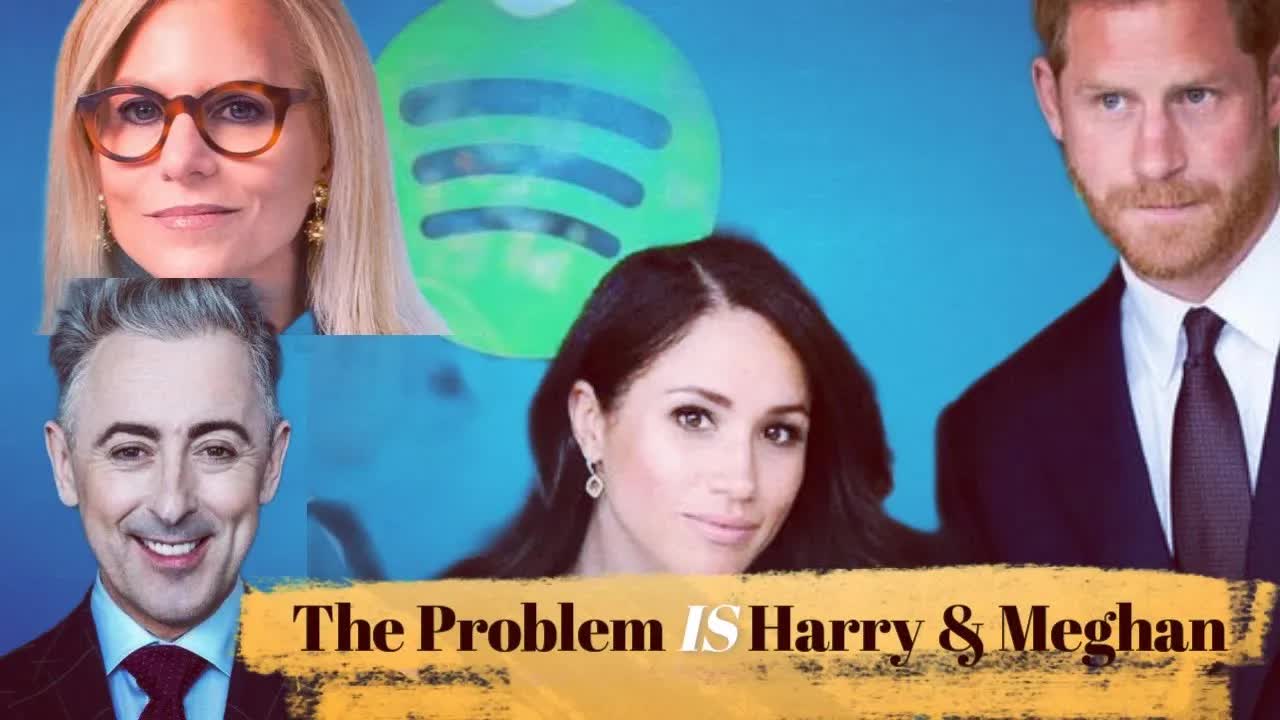In a significant shake-up in the streaming world, Spotify’s Chief Content and Advertising Officer, Daniel Don Ostroff, has announced his departure from the company.
This news comes on the heels of Spotify laying off approximately 600 employees, a move that has sent shockwaves through the industry.
Ostroff’s exit raises questions not only about Spotify’s future but also about its ambitious podcasting strategy, which has faced increasing scrutiny from investors.
Ostroff’s tenure was marked by high-profile deals, including the signing of the Duke and Duchess of Sussex for their Archetypes podcast.
This partnership with Meghan Markle‘s production company, Archewell Audio, aimed to capitalize on the couple’s royal status but has since been met with disappointing audience numbers.
Despite initial excitement, the podcast struggled to maintain listener engagement, leading to concerns over its sustainability.
Spotify’s CEO acknowledged in a blog post that the company’s aggressive investment strategy may have been overly optimistic, particularly in light of the recent layoffs.
The hefty financial commitments, estimated at around $1 billion, were aimed at securing exclusive content and popular personalities like Joe Rogan.
However, as losses mounted, the wisdom of these investments has come under fire.
Critics argue that the allure of celebrity, particularly in the case of Markle, did not translate into long-term success.
Her podcast, while initially drawing attention, failed to captivate audiences consistently.
The concept of “archetypes” seemed to lack substance, leading to a perception that the content was more about her title than genuine storytelling.
This situation highlights a broader issue within the realm of celebrity-driven content: does fame equate to talent?
As Spotify grapples with these challenges, it appears that the public’s fascination with the royals may be fleeting.
The couple’s attempts to leverage their royal connections for media success have sparked debates about their authenticity and the motivations behind their projects.
Critics suggest that the only compelling narratives surrounding Harry and Meghan are those that involve their contentious relationship with the royal family.
In contrast, Netflix has thrived with its content featuring the couple, suggesting that audiences are drawn to the drama rather than the substance of their projects.
The success of their Netflix documentary is a testament to this phenomenon.
Viewers seem to tune in not for the couple’s insights, but rather for the spectacle of their tumultuous journey away from royal duties.
The ongoing fallout from the Spotify layoffs raises ethical questions about the entertainment industry.
Many are left wondering if the financial rewards of such high-profile deals justify the impact on employees’ lives.
The connection between the couple’s lucrative contracts and the jobs lost at Spotify has not gone unnoticed, igniting discussions about corporate responsibility in the face of celebrity culture.
Moreover, recent developments involving actors like Alan Cumming, who returned his OBE award in protest against the monarchy’s historical actions, indicate a growing discontent with royal affiliations.
This trend could further complicate Harry and Meghan’s efforts to carve out a niche for themselves outside the royal spotlight.
As they attempt to build a brand rooted in social justice and advocacy, they must navigate the complexities of public perception and historical accountability.
The question remains: can Harry and Meghan sustain their relevance without continuously engaging in royal controversies?
Their previous attempts to pivot towards more personal projects, like Meghan’s Archetypes podcast, have not resonated as hoped.
The challenge lies in balancing their desire for independence with the public’s expectations for drama and intrigue.
As the couple faces rising criticism and dwindling interest in their projects, they may need to reevaluate their approach.
The entertainment landscape is ever-changing, and what once captivated audiences may no longer hold their attention.
The stakes are high, and the pressure to maintain a glamorous lifestyle could lead them down a precarious path.
Ultimately, the fallout from Spotify’s restructuring serves as a reminder of the unpredictable nature of the entertainment industry.
For Harry and Meghan, the road ahead is fraught with challenges, and their ability to adapt will determine their future success.
As they navigate these turbulent waters, the question lingers: will they find a way to engage audiences beyond the royal narrative, or will they remain tethered to the very drama they sought to escape?










